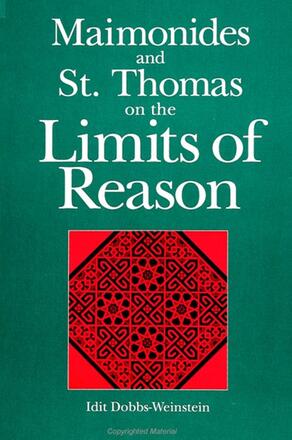
Maimonides and St. Thomas on the Limits of Reason
This book shows that Maimonides and St. Thomas reached strikingly similar conclusions regarding the limits of reason and that these limits, in turn, show the dimensions of philosophical understanding.
Description
Through a comparative philosophical examination of the diverse aporiae constituting the question of "providence," the author seeks to determine the degree of philosophical compatibility between Maimonides and St. Thomas Aquinas, and where disagreement is evident, its origin, nature and philosophical consequences. Dobbs-Weinstein retrieves some occluded aspects of their thought that render a better understanding of each thinker and provide a richer philosophical vocabulary for discussions of the limits of "reason," the consequent inevitable limits of language and interpretation and, above all, the relation between knowing and acting.
This study also shows how and why, despite the fact that they adopt some radically different ontological principles, Maimonides and Aquinas reach strikingly similar conclusions concerning the existential dimensions of human life, especially the possibilities and modes of knowledge and the actions consequent upon them.
Idit Dobbs-Weinstein is Assistant Professor of Philosophy at Vanderbilt University.
Reviews
"The book provides an important discussion of the agent intellect as conceived by Maimonides and by Aquinas. Dobbs-Weinstein does justice to both authors; her treatment is penetrating.
"It is a highly focused inquiry based on extensive study. While both Maimonides and Aquinas acknowledge a common intellectual tradition, their differing religious outlooks provide contrasting insights. The author makes them talk to one another and not past each other. The topics chosen for discussion are significant, not esoteric; they are issues confronted equally by medieval and contemporary moralists who subscribe to a Judaic or Christian belief system. Dobbs-Weinstein assists the reader by providing many accurate and helpful comparisons between the two. " — Jude P. Dougherty, The Catholic University of America